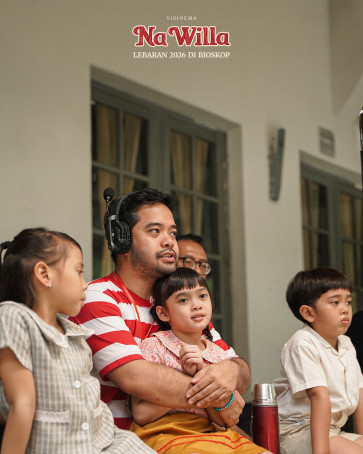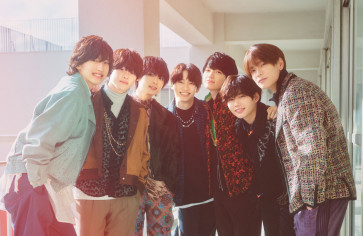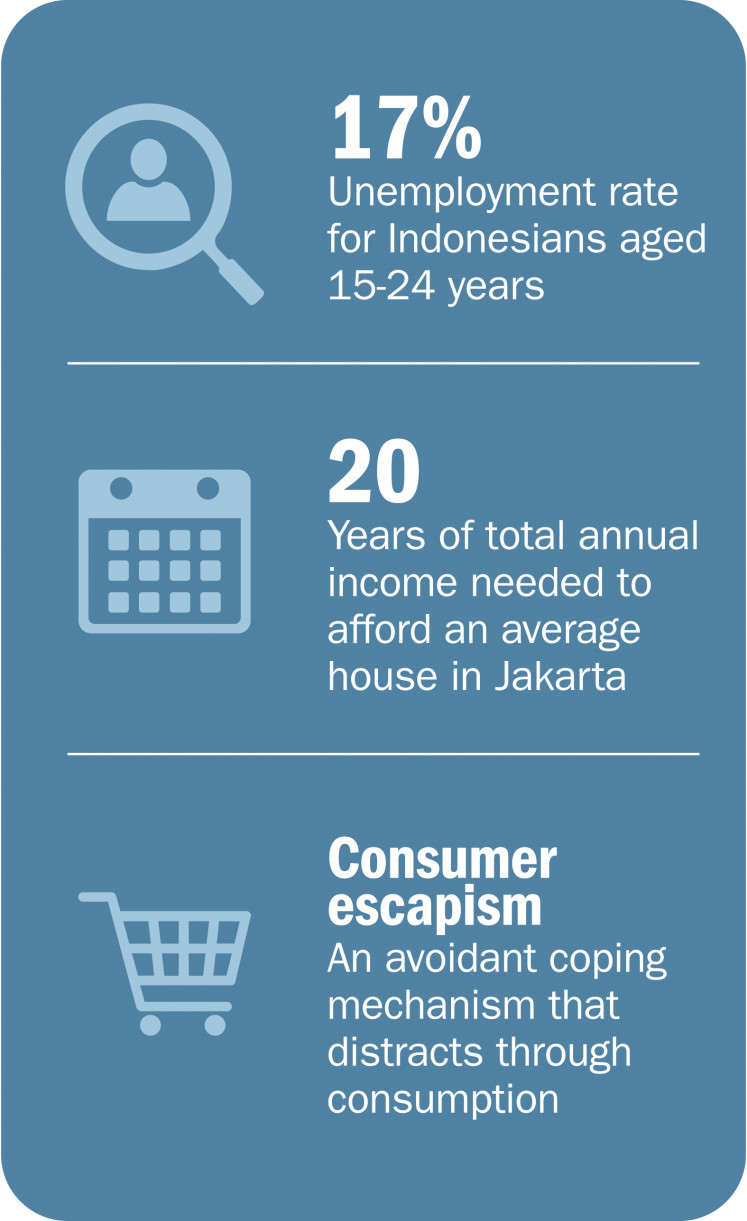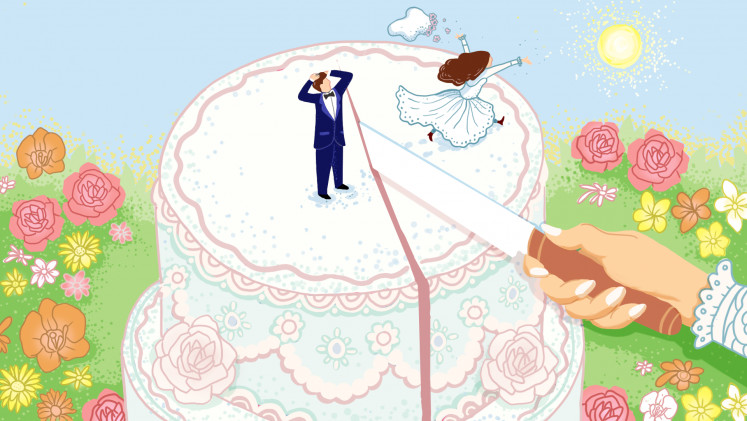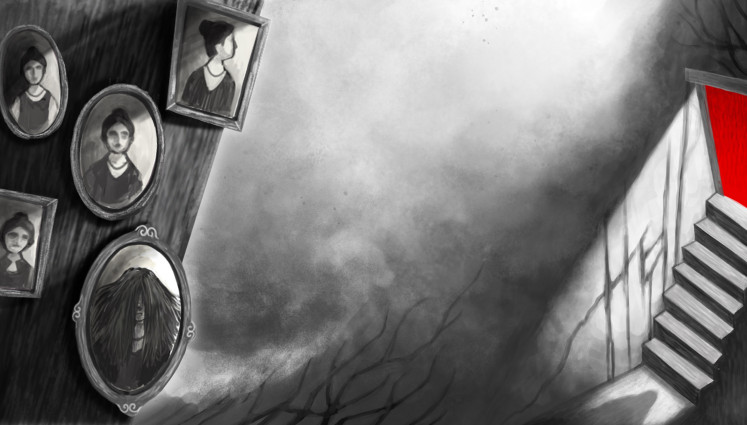Is the most exciting part of your life receiving a notification that your check cleared or hearing a courier yell, “paket”? Same here.
There are days when I wish things were more fulfilling and easier, getting jobs, building a career, making money and paying bills. People always say life’s not supposed to be easy. I get that, but it doesn’t stop me from wondering why.
Being young and ambitious today, in the competitive age of late-stage capitalism, it makes sense why we never feel satisfied. The “grind mindset” was pushed on us when we were younger. But now, as we hit our mid-20s, we’re still clueless about life.
Unlike generations before us who have “set their sails”, we’re still finding our way. We’re told to balance today’s fast-paced work environment with life, to eat healthily and socialize and take care of family duties, but not to forget self-care and date, the list goes on.
Yet, we’re told we’re underqualified to demand a liveable wage despite having a degree, ambition and adaptability.
We can’t even suffer in silence without someone posting and monetizing a rant about how “Gen Z is lazy and whiny.”

Thank you!
For signing up to our newsletter.
Please check your email for your newsletter subscription.
In high school, they told us college was the “real world”. Then, in college, while we were taking classes via Zoom, they said, “Real life begins after graduation.”
But what kind of life begins behind closed doors, while the world was in pandemic lockdown?
Real jobs are hard to come by, evidenced by the almost 17 percent unemployment rate for Indonesians aged 15-24 years old, and so many of us found solace in the gig economy.
It’s not uncommon to hear of people my age juggling multiple jobs while still living paycheck to paycheck, covering rent, utilities and transportation, plus some shopping and the occasional weekends out with friends.
Yes, we do shop and go out. Because at the end of the day, most of us in this overwhelming city are not just trying to survive, but to live.
Read also: Indonesian women artists: trandscending compliance
Why we live like this
Gen Z, or Zoomers, in big cities often get mocked for their lifestyle. Bougie cafés, music festivals, the latest smartphones, it all looks glamorous from the outside, even as we complain of the harshness of life.
If there’s one word that describes our choices, it’s “FOMO” (fear of missing out).
Ask anyone why we live like this, and the answer is usually pessimistic, even nihilistic. Many feel there’s not much else to live for.
Before the global economic downturn, my college friends and I fantasized about buying a house in or near the city. Most of us come from working-class backgrounds, so we knew we’d have to save up on our own.
It seemed possible back then, back when we were more hopeful.
Now, that dream has mostly disappeared. Every year, inflation, which rose sharply in the post-pandemic years just as we were struggling to get started in life, pushes living costs further beyond our reach.
The average house in Jakarta now costs nearly 20 times the average annual income of one person, according to a June 2024 report from the University of Indonesia’s Institute for Economic and Social Research. Rumah123 reported a 4.7 percent annual increase in housing prices in Greater Jakarta and Bogor, West Java, this year alone.
How will we ever afford a home?
. (The Jakarta Post)
In an informal survey we did for this article, about 75 percent of the 85 Jakarta residents aged 22 to mid-30s who answered said they had a full-time job. But around the same percentage earned just slightly above the minimum wage of Rp 5 million (US$320).
Most told us they made just enough to cover daily expenses, which is why 71 percent of them still live with their families.
Unsurprisingly, more than half of Gen Z aged 21-26 in Indonesia take on side jobs to support themselves, according to a 2023 survey with more than 600 respondents on Statista.
What we can afford
So, we seek the thrill and tranquility of life in the ways we can afford. Is our hedonism a means of survival? In this day and age, it’s likely.
Millennials and boomers may sneer and say Gen Z has “mental tempeh,” or a weak mentality. But isn’t it miserable to devote your life solely to work, while missing out on enjoying our time with friends and loved ones?
In our informal survey, most people cited dining out as their go-to leisure activity. The survey on Statista reports that Indonesian Gen Z spends 69 percent of their monthly expenditure on food.
While older generations may see this as excessive, the reality is that that a culinary day out is probably the closest thing we can afford to a real break.
Indonesian Zoomers also spend roughly Rp 500,000 per month on online shopping, with clothing and beauty products topping the list, according to the survey on Statista.
Despite the stereotype that youth is bad at handling money due to a lack of financial literacy, the Financial Services Authority (OJK) found in August 2024 that Indonesians aged 18-35 have some of the highest financial literacy rates. People aged 26-35 scored nearly 75 percent, while those aged 18-25 reached just over 70 percent.
But what good is financial literacy without money? Forget saving for a house or achieving financial freedom.
Sure, cutting back on coffee and cigarettes might save us some cash by the end of the month, but that won’t be enough to fund property purchases or even pay rent in Jakarta.
Read also: Finding comedy in tragedy, the artist's way
Existing or living?
Remember the thrill of getting your first paycheck? It felt like you’d finally arrived! But soon enough, the weight of responsibility kicks in, bills, rent and expenses keep piling up.
I often feel like Sisyphus, rolling the boulder of work through each week, only to watch time, and money, slip away over the weekend.
“Let’s eat something good!”
“Should we try this bar?”
“There’s another shopping event.”
Everything in Jakarta revolves around consumerism. We’re stuck in this weird cycle of productivity and reward. Travel is marketed as “healing”, eating out is a “treat” and spending millions to meet filtered beauty standards is “self-care”.
It’s as if living well has been reduced to a consumerist ideal, where our value is tied to what we buy. Is it because without these symbols of status, we feel like we have nothing? Honestly, probably.
This pattern of spending is known as consumer escapism, an avoidant coping mechanism that distracts through consumption. There’s an instant gratification that comes with it, a brief thrill that stands in stark contrast to the monotony of everything else.
The corporate world knows this and capitalizes on it with constant discounts and an endless parade of must-haves and must-tries.
Generally, most of us prioritize spending based on our needs. But saving for a pair of Rp 2 million shoes seems far more achievable than saving for a house.
“Paket!” A courier is outside my door with my latest online purchase, a welcome interruption to my whining.
Read also: Highlights of Art Jakarta 2024
Back to reality
It’s exhausting to constantly be spending money we barely have.
Sure, there are ways to cut back, but with the state of the world today, many Gen Zers feel a sense of hopelessness. We worry about social and economic inequality, about the bleak future, as well as mental health and well-being. Our social media feeds alternate between war, environmental doom and the newest café we definitely have to try.
Offline, reality isn’t pretty: Careers feel linear, the job market is tougher than ever and everything is absurdly expensive.
The pandemic led to mass layoffs, businesses shutting down and a struggle to find work, even for those just looking for internships.
Worse yet, many job openings in Jakarta have, in the past few years, limited applicants’ age to a maximum of 25. And the Constitutional Court said this is legal.
So, younger Gen Z are being pushed to enter the workforce, even while still in university. Meanwhile those of us who graduated during the pandemic, and suffered through its after-effects, are now becoming too old to even apply.
Naturally, we want to make the best of life while we can. In whatever way we can.
So, if you’re part of our older, more successful readers, allow me to ask: What can we do?
Felicia Melody writes about lifestyle, beauty and fashion (and all things related to passion) from Jakarta. Some may say she's all over the place, but she's really just "always somewhere".






